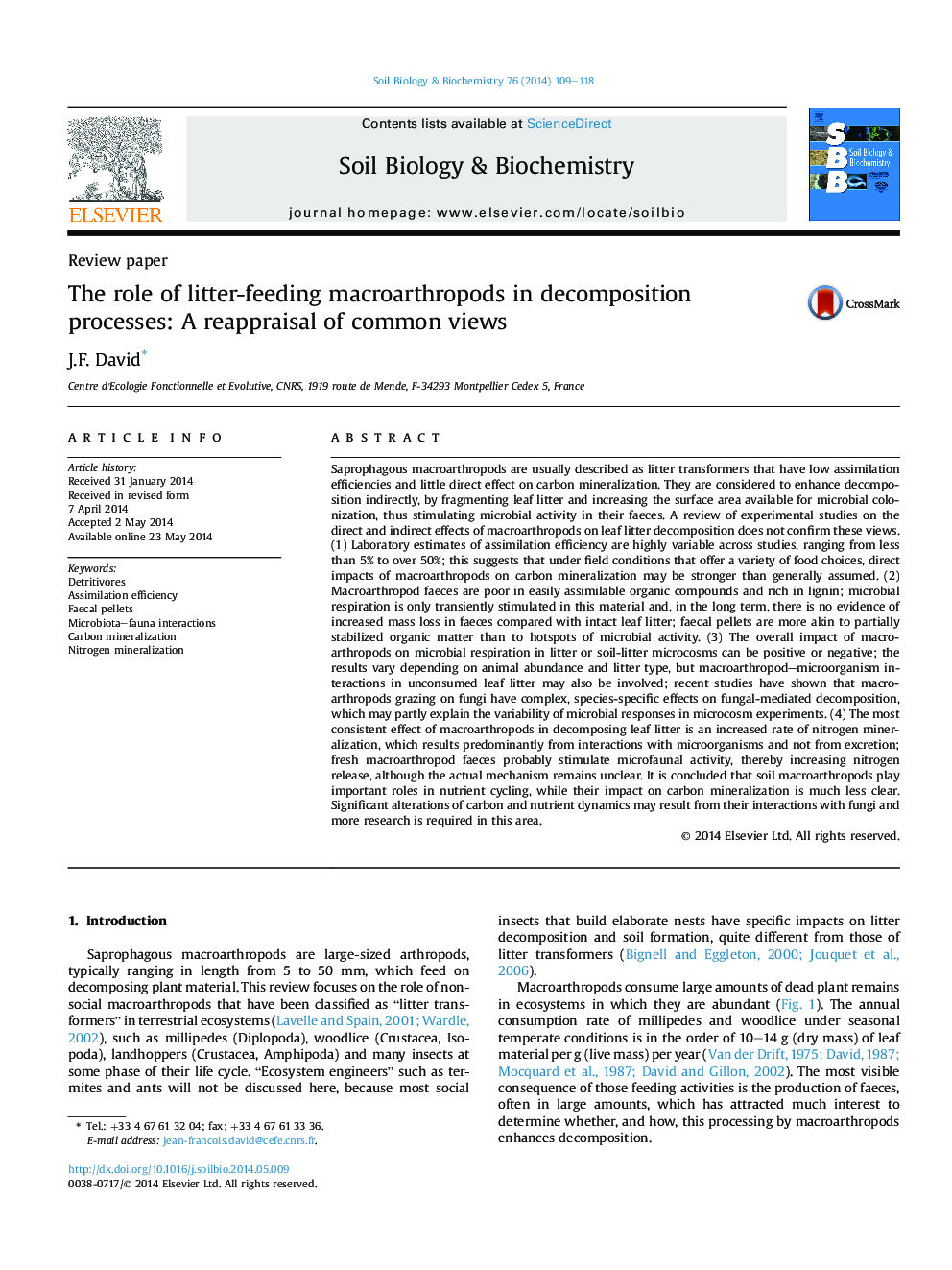| کد مقاله | کد نشریه | سال انتشار | مقاله انگلیسی | نسخه تمام متن |
|---|---|---|---|---|
| 8364571 | 1542608 | 2014 | 10 صفحه PDF | دانلود رایگان |
عنوان انگلیسی مقاله ISI
The role of litter-feeding macroarthropods in decomposition processes: A reappraisal of common views
ترجمه فارسی عنوان
نقش مورادران تغذیه خونی در فرایندهای تجزیه: بررسی مجدد دیدگاه های مشترک
دانلود مقاله + سفارش ترجمه
دانلود مقاله ISI انگلیسی
رایگان برای ایرانیان
کلمات کلیدی
موضوعات مرتبط
علوم زیستی و بیوفناوری
علوم کشاورزی و بیولوژیک
دانش خاک شناسی
چکیده انگلیسی
Saprophagous macroarthropods are usually described as litter transformers that have low assimilation efficiencies and little direct effect on carbon mineralization. They are considered to enhance decomposition indirectly, by fragmenting leaf litter and increasing the surface area available for microbial colonization, thus stimulating microbial activity in their faeces. A review of experimental studies on the direct and indirect effects of macroarthropods on leaf litter decomposition does not confirm these views. (1) Laboratory estimates of assimilation efficiency are highly variable across studies, ranging from less than 5% to over 50%; this suggests that under field conditions that offer a variety of food choices, direct impacts of macroarthropods on carbon mineralization may be stronger than generally assumed. (2) Macroarthropod faeces are poor in easily assimilable organic compounds and rich in lignin; microbial respiration is only transiently stimulated in this material and, in the long term, there is no evidence of increased mass loss in faeces compared with intact leaf litter; faecal pellets are more akin to partially stabilized organic matter than to hotspots of microbial activity. (3) The overall impact of macroarthropods on microbial respiration in litter or soil-litter microcosms can be positive or negative; the results vary depending on animal abundance and litter type, but macroarthropod-microorganism interactions in unconsumed leaf litter may also be involved; recent studies have shown that macroarthropods grazing on fungi have complex, species-specific effects on fungal-mediated decomposition, which may partly explain the variability of microbial responses in microcosm experiments. (4) The most consistent effect of macroarthropods in decomposing leaf litter is an increased rate of nitrogen mineralization, which results predominantly from interactions with microorganisms and not from excretion; fresh macroarthropod faeces probably stimulate microfaunal activity, thereby increasing nitrogen release, although the actual mechanism remains unclear. It is concluded that soil macroarthropods play important roles in nutrient cycling, while their impact on carbon mineralization is much less clear. Significant alterations of carbon and nutrient dynamics may result from their interactions with fungi and more research is required in this area.
ناشر
Database: Elsevier - ScienceDirect (ساینس دایرکت)
Journal: Soil Biology and Biochemistry - Volume 76, September 2014, Pages 109-118
Journal: Soil Biology and Biochemistry - Volume 76, September 2014, Pages 109-118
نویسندگان
J.F. David,
